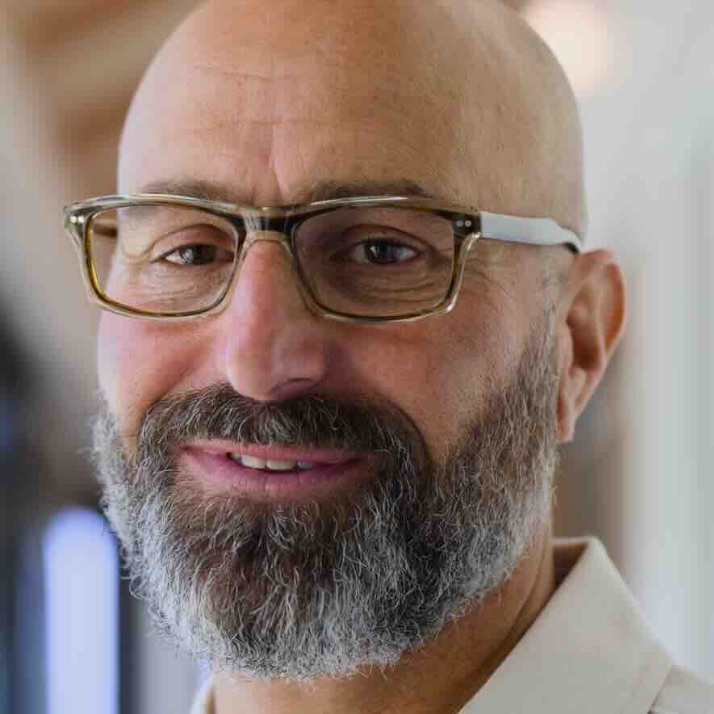How to Get Help for Trauma in Colorado Springs
If you’re ready to start healing from Trauma and want support close to home, use MiResource to find the right therapist in Colorado Springs today. Our trusted, easy-to-use directory helps you quickly match with licensed providers who fit your needs—filter by specialty, insurance, price range, availability, and virtual or in-person care—so getting started feels simpler and less overwhelming. Explore personalized options, see who is accepting new clients, and reach out with confidence knowing you’re taking a concrete step toward feeling better. Take the first step now: browse MiResource to discover compassionate, qualified Trauma therapists in Colorado Springs and connect with care that meets you where you are.
Finding Licensed Trauma Therapists in Your State
Choosing a therapist licensed in your state ensures they can legally provide care (including telehealth) and helps your insurance reimburse sessions. MiResource lets you filter providers by state licensure to find trauma therapists near you, including in Colorado Springs. All professionals listed are vetted, qualified, and legally able to provide care in your state.
Colorado Springs’ unique mix of active-duty military and veterans from Fort Carson, Peterson and Schriever Space Force Bases, and the U.S. Air Force Academy, along with families impacted by past wildfires (Waldo Canyon, Black Forest) and flood events, can shape how trauma shows up and how people seek care. Many residents also draw support from tight-knit faith communities and an outdoors-centered culture, which can complement therapy through resilience-building and routine. For in-person sessions, clinicians near Downtown along Tejon and Nevada offer easy access to metered street parking and city garages, while offices in Briargate and along the Powers corridor typically have free surface lots and less walking. Mountain Metro Transit serves key corridors with a Downtown Terminal on Kiowa St. for transfers, helpful if you’re coming from Old Colorado City or near UCCS on Austin Bluffs; plan around I‑25 slowdowns at Cimarron and Rockrimmon during rush hours, or consider offices near Monument Valley Park or Garden of the Gods for post-session grounding walks.
Local trauma resources include Diversus Health for crisis, outpatient, and a walk‑in center and Colorado Crisis Services for 24/7 support and locations statewide . Find peer groups and family education through NAMI Colorado Springs , and survivor-centered care via TESSA for domestic and sexual violence . Veterans and their families can access confidential counseling at the Colorado Springs Vet Center (VA) . El Paso County Public Health lists countywide behavioral health and trauma resources , and students can connect with trauma-informed counseling at the UCCS Wellness Center . For parking and transit planning, see the City’s ParkCOS page and Mountain Metro (/).
What You Need to Know About Trauma
Trauma is the emotional wound left by deeply upsetting experiences, whether sudden or long-lasting. It can affect sleep, mood, focus, and relationships, but support and healing are available in Colorado Springs.
Common Signs and Symptoms of Trauma
If you’ve been through something overwhelming, it’s common for your mind and body to react. Everyone’s experience is different, and symptoms can come and go. You are not alone.
- Intrusive memories, flashbacks, or upsetting dreams
- Feeling on edge, jumpy, or easily startled
- Avoiding places, people, or reminders of what happened
- Numbness, feeling detached, or “checked out”
- Strong emotions that feel hard to control (fear, sadness, anger, shame, guilt)
- Irritability or outbursts
- Trouble concentrating or remembering things
- Sleep problems (trouble falling or staying asleep, restless sleep)
- Physical symptoms like headaches, stomachaches, muscle tension, or fatigue
- Changes in appetite or energy
- Withdrawing from friends, family, or activities you used to enjoy
- Difficulty trusting others or feeling safe
- Feeling hopeless, helpless, or disconnected from yourself or the world
- Using alcohol or drugs, overeating, or other behaviors to cope
- Risk-taking or self-destructive behaviors
Signs in children and teens can look different:
- Regression (bedwetting, clinginess), new fears, or frequent nightmares
- Irritability, outbursts, or sudden changes in mood or school performance
- Physical complaints (tummy aches, headaches) without a clear cause
- Play or drawings that repeat parts of the event
If these signs resonate with you or someone you care about in Colorado Springs, support is available, and healing is possible.
Causes and Risk Factors for Trauma
Trauma can result from many experiences, such as accidents, violence or abuse, sudden loss, medical emergencies, natural disasters, or the stresses of military and first-responder life common in the Colorado Springs area. Biological factors like family history and how your brain and body respond to stress can increase vulnerability, as can psychological factors like past trauma, anxiety, or depression. Environmental factors—chronic stress, discrimination, financial strain, unstable housing, or limited support—also play a role. Trauma is not a personal failing; it’s a complex response to difficult events, and healing is possible with the right support.
How Trauma Can Affect Daily Life
Trauma can make daily life feel heavier, affecting relationships through trust issues, irritability, or pulling away from people you care about. At work or school, you might have trouble concentrating, feel on edge, or avoid certain situations—like skipping a team meeting because it feels overwhelming, or leaving class when a reminder of the past comes up. Sleep problems, low energy, and sudden mood shifts can chip away at your confidence and overall quality of life. If you’re navigating this in Colorado Springs, know that support is available and healing is possible at your own pace.
Treatment and Support Options for Trauma
Evidence-based treatments for trauma include trauma-focused CBT, EMDR, prolonged exposure, and cognitive processing therapy; some people also benefit from somatic and mindfulness-based therapies, with medications like SSRIs or prazosin sometimes used to manage symptoms. Support options include individual or group therapy, peer-support groups (in person or online), trauma-informed community services, and culturally responsive care. Self-help strategies such as grounding techniques, paced breathing, regular movement and sleep routines, journaling, and apps that teach skills (e.g., mindfulness or DBT skills) can complement professional care. Helpful resources include the National Child Traumatic Stress Network, the International Society for Traumatic Stress Studies, SAMHSA’s treatment locator (US), and local mental health helplines or community clinics—reach out and build a support plan that fits your needs and preferences.
Frequently Asked Questions
1) What is Trauma and how is it diagnosed?
Trauma refers to the emotional and physical impact of distressing events that overwhelm your ability to cope. A diagnosis is based on your experiences and symptoms, typically gathered through a clinical interview and questionnaires that explore things like mood, sleep, memories, and safety. Licensed mental health professionals—such as therapists, psychologists, and psychiatrists—can diagnose Trauma, and your primary care provider can also screen and refer. If you’re in Colorado Springs, a trauma-informed clinician can help clarify what you’re experiencing and recommend care.
2) Who is most likely to experience Trauma?
Anyone can experience Trauma, regardless of age, background, or identity. Certain factors—such as past adversity, ongoing stress, limited support, or high-risk jobs—can increase vulnerability, but they do not define you. People in caregiving, first responder, military, and healthcare roles in Colorado Springs may face added exposure, yet Trauma is never a sign of weakness. With the right support, healing is possible for everyone.
3) How common is Trauma?
Exposure to traumatic events is very common; most people experience at least one in their lifetime. In the U.S., about 6–8% of people will develop posttraumatic stress disorder (PTSD), and many more have trauma-related symptoms that still deserve care. In Colorado Springs, you’re far from alone—Trauma is a shared human experience, and help is available. Seeking support early can lessen symptoms and improve recovery.
4) Can Trauma be prevented?
While not all traumatic events can be prevented, certain steps can reduce risk and support resilience. Strong social connections, regular stress management, safe environments, and early support after difficult events can lower the impact of Trauma. Training for high-stress roles and access to trauma-informed care in Colorado Springs also help. Building coping skills before and after stressful experiences can protect your well-being.
5) What should I do if I think I have Trauma?
Start by talking with a trusted professional—MiResource can connect you to trauma-informed therapists in Colorado Springs who match your needs, insurance, and preferences. You can also speak with your primary care provider for screening and referrals. If you’re in immediate distress or concerned about safety, call or text 988, or reach Colorado Crisis Services at 1-844-493-8255 (or text TALK to 38255). Keeping notes about your symptoms and what triggers them can help guide your care plan.
6) How can I talk to others about my Trauma?
Share only what feels safe and helpful, and set clear boundaries about topics you’re not ready to discuss. You might start with how Trauma affects you today—sleep, mood, concentration—and what support you’d like, such as listening or practical help. Choose a calm time and place, and consider practicing with a therapist in Colorado Springs to build confidence. It’s okay to pause or change the subject if you become uncomfortable.













